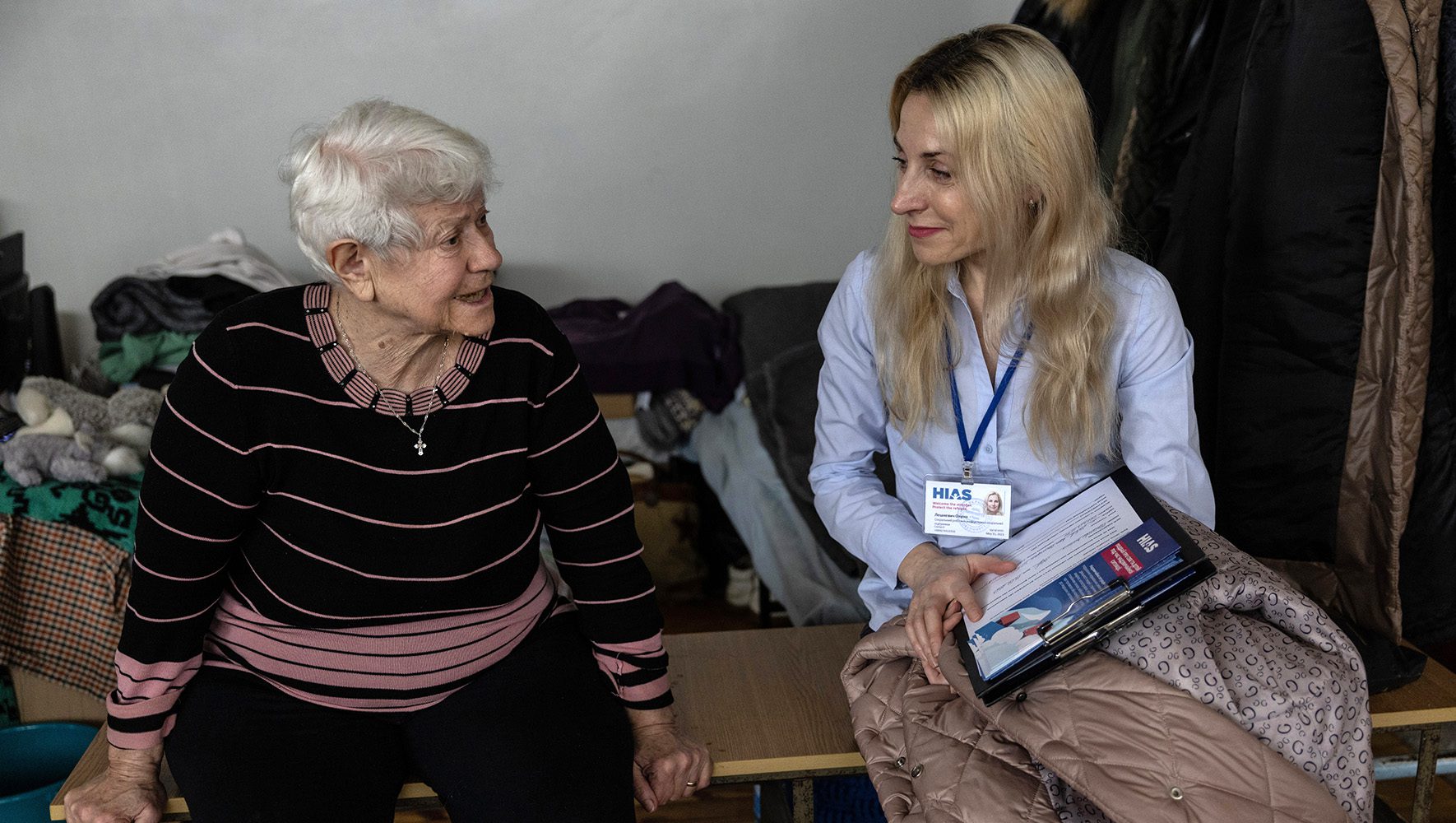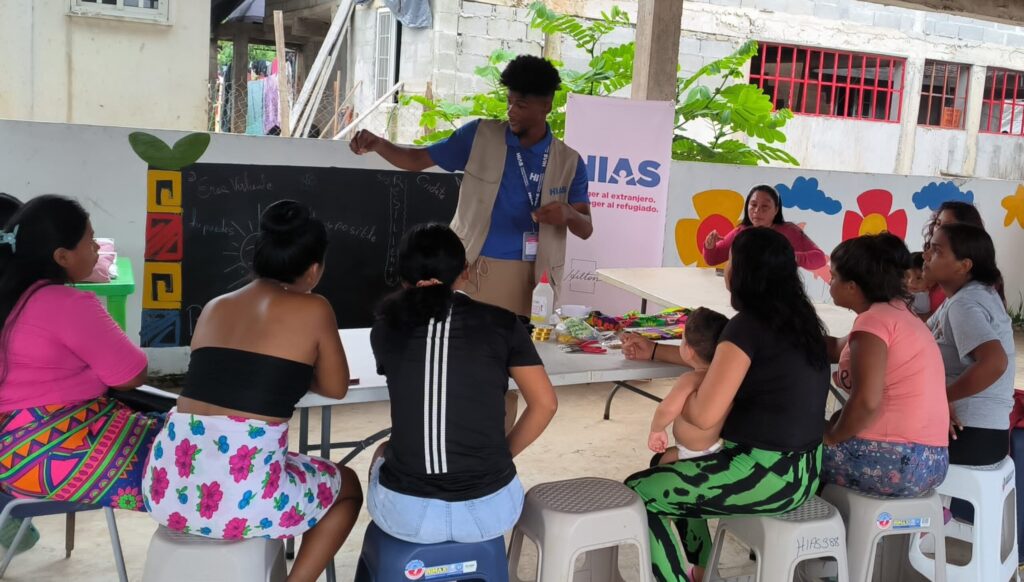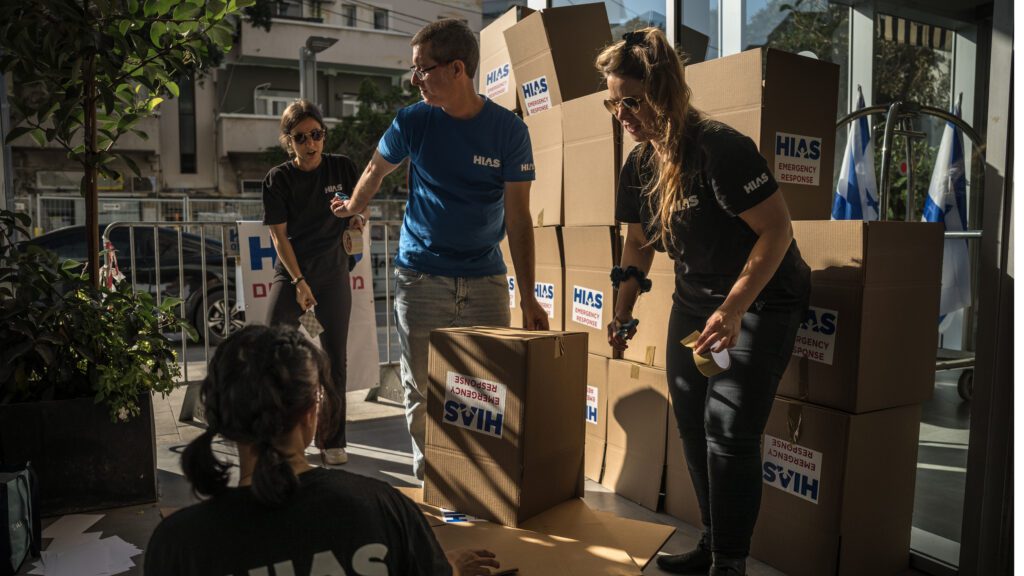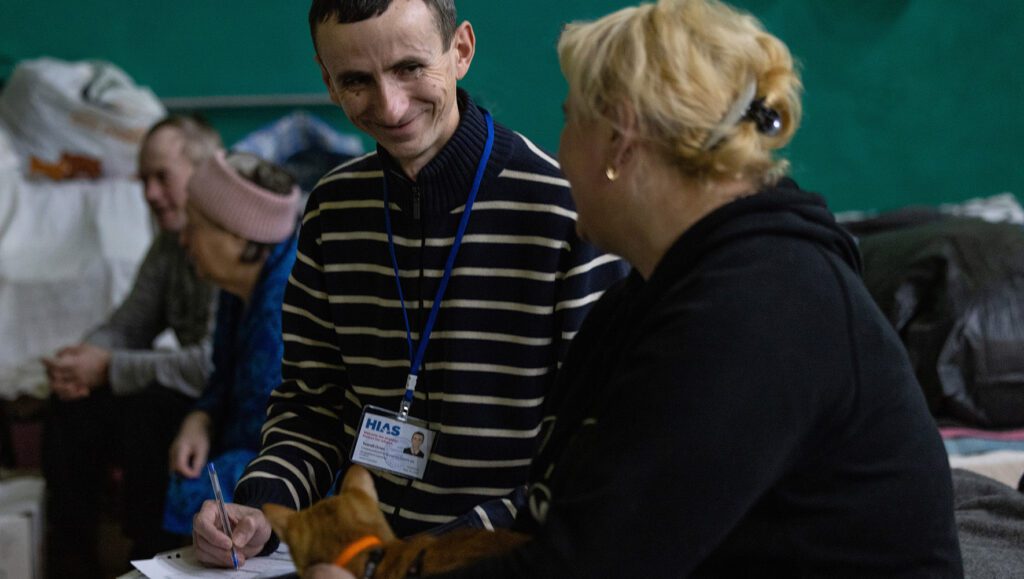
The full-scale war in Ukraine has had a devastating effect on the country’s population: According to recent estimates, the total number of troop deaths and injuries are approaching 500,000. But these casualty numbers do not measure the enormous psychological impact the war has had on Ukraine’s population, even those who have escaped physical harm.
To better understand the war’s mental health impact, HIAS and Girls, an organization that supports women and girls in Ukraine, collaborated on a nation-wide mental health and psychosocial needs assessment undertaken between July and August 2023. The report — 18 Months Later: A Mental Health and Psychosocial Needs Assessment Across Ukraine— reassesses the impact of this conflict on the population’s mental well-being and psychological needs today to help address gaps in services and provide support that is relevant and useful.
Below, Alessandra Sacchetti, a HIAS regional technical advisor for mental health and psychosocial support services (MHPSS), discusses the findings of the report and its implications for people in Ukraine:
What prompted HIAS to conduct this report?
While working on different projects, the MHPSS team noticed that there was no updated information about the mental health needs of Ukrainians. Since the war accelerated in 2022, the context has changed dramatically, and our team was curious how people felt and coped with stress as well as provided and received support in 2023. We found out that most assessments and research were focused on internally displaced people (IDPs), leaving out host communities or people who have not fled from conflict-affected areas, and we identified a gap in knowledge about challenges faced by adolescents and by caregivers. It was then clear to us that we needed a new assessment.
What were the main findings?
Ukrainians are now facing new mental health challenges. Today the majority of respondents describe their state as “put on pause,” with anxiety, fatigue, and sleeping problems evident in more than half of the population. We discovered that two thirds of people have poor and below average wellbeing, with 26% showing signs of depression.
An overwhelming number of children and adolescents have stress. Adolescents face additional challenges related to socialization and life-changing decisions, such as moving to another country to study or signing up for the army. This age group showed the highest rate of impulsive and aggressive behavior, social isolation, and suicidal thoughts. Overall, caring for a child or adolescent got more complicated during the war. Caregivers explained how hard it is to support children while being stressed themselves, and how difficult it is for parents of small children to access mental health services if they don’t also have access to childcare.
There are many barriers to mental health services, and there is still a stigma around receiving professional support. Ukrainians tend to think that they can cope on their own, and do not understand that assistance comes in various forms. Unfortunately, services remain limited both geographically and in terms of audience: There are almost no service providers in rural areas, no services tailored for adolescents, and there is a lack of services targeting men.
Was there anything in the findings that surprised you?
Efforts to raise awareness, while reaching the general population, have fallen short, in part due to stigma — which is especially acute with men. Nearly half of the respondents have a close relative in the army, but there were no programs addressing special needs and concerns of families of servicemen and veterans (and servicemen and veterans themselves).
Despite all the efforts of the humanitarian community to ensure coverage and access to mental health services, many Ukrainians do not know about those services or where to find them.
What more needs to be done to address the challenges you describe?
As a humanitarian community, we should continue educating people about mental health and stress — but on a more advanced level. There is a need to share success stories, especially involving men, and for awareness of the different forms mental health services can take.
We should also expand services to villages, possibly in the form of mobile teams, and to tailor services for different groups. We should improve the referral process and focus on integrating mental health into health, livelihood, shelter and other areas.


